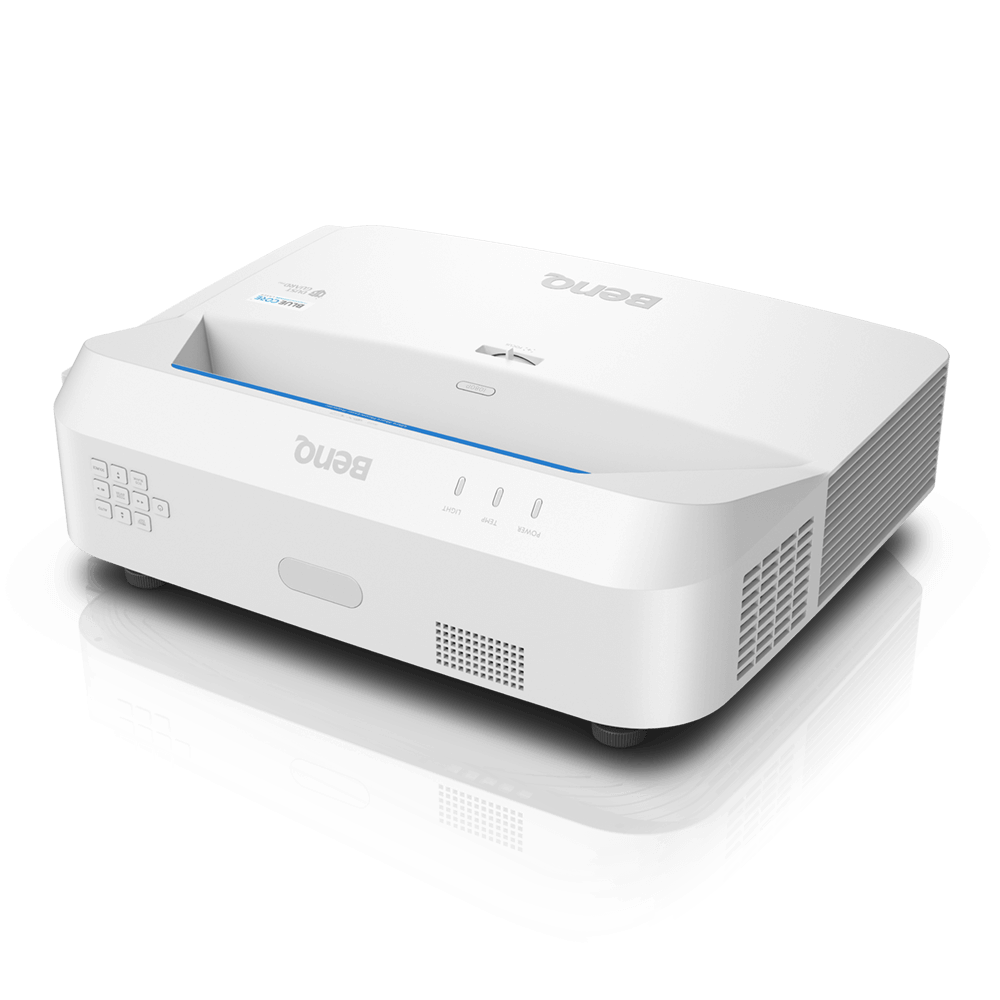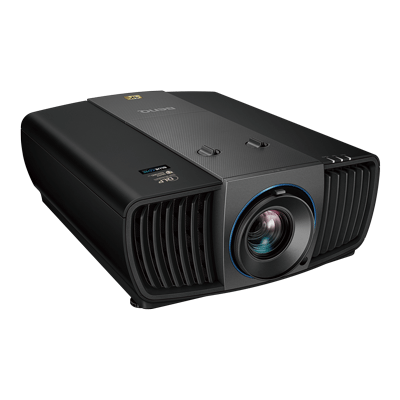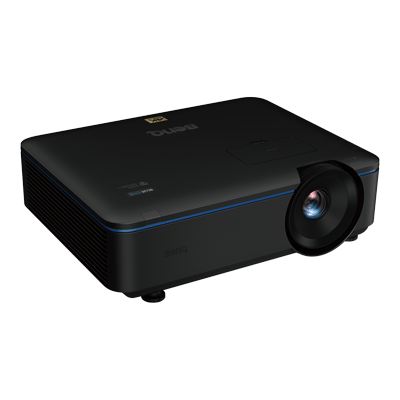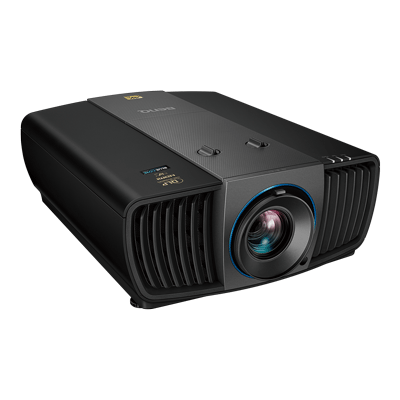What are the best alternatives to the Epson BrightLink laser projector today?
- BenQ
- 2020-06-10
If you use interactive whiteboards, or traditional projectors as part of your classroom technology suite, you may be looking to upgrade to the latest laser light technology to lower your overall cost of ownership and improve the image quality. The Epson BrightLink is a popular choice for an ultra-short-throw projector that can be mounted on the wall, but how does it hold up against the new BenQ ultra-short throw laser projectors? This article will explore the differences in these three areas:
Both the Epson BrightLink and BenQ Laser projectors are high-quality products from the two largest projector brands in the world. According to Futuresource, BenQ is the leading education brand in the world using DLP technology, while Epson is the leading brand using the traditional three panel LCD architecture. They both have 20,000-hour laser life, can be controlled via the network, and are available either with (BrightLink) or without (PowerLite) a touch or pen interactive solution. Both projector models are used in thousands of classrooms around the world and have special warranty options available for government and school purchases. Here are the key differences you may want to consider:
Classroom projectors rack up a lot of hours over the years, so all BenQ classroom laser projectors use Texas Instruments DLP chips which are rated for 100,000 hours of use. This is the same technology currently used in most digital cinemas, and every IMAX movie theater due to its ability to maintain a high-quality image over time. The main advantage of DLP technology in a classroom is that the projector will never turn yellow over time – ensuring your investment will last not only through the warranty period but for many years afterward. All the Epson BrightLink projectors use a laser engine design with a rotating phosphor wheel and three LCD panels to create the image.
While dust can be a problem with traditional lamp projectors, for laser projectors dust can be a major issue. If a laser beam strikes a dust particle inside the projector, it can turn it into superheated “molten goo” that can land on a critical component. BenQ and Epson take two different approaches to solve this. Every BenQ model uses a completely sealed laser engine to keep the dust out of the projector. These models undergo a test inside a dust chamber that simulates over 20,000 hours of heavy dust exposure – and is then disassembled to ensure that there is no dust impacting the critical components of the projector. Smartwatches such as the Apple Watch go through the same testing. The Epson BrightLink and PowerLite projector models use an open design with a traditional filter and do not certify the projector using standard IP5X dust contamination tests. The projector will provide warning messages when the filters need cleaning and have detailed instructions on how to clean or change the filter in the maintenance section of their manuals as part of the regular projector.

BenQ LH890UST Classroom Laser Projector
Projectors used with an interactive whiteboard need to be perfectly placed on the screen for accurate pen and touch control. While this is done when it is installed – the projector can become misaligned after being bumped by the school’s star basketball player (or countless other reasons). To fix this on a BenQ projector – it’s simple. The BenQ wall mount has special knobs that enable the teacher or technician to adjust the image with a simple twist to either the vertical or horizontal axis – correcting the image in just seconds. The system also has easy adjustments for other elements such as tilt or to shift the screen. This innovation can save valuable teaching and IT time when it comes to recalibrating the projector.
While both brands are the largest in the projector industry, BenQ is also a leading provider of interactive flat panels that are starting to replace the traditional projector/whiteboard combination. Many of the software systems that are used to monitor and control these interactive displays can also be used with BenQ – and even Epson projectors. You may also want to look at the new smart projectors that enable teachers to log in to their Google Drive and teach right from the projector without a computer.
For customers looking for advice on choosing the right projector for their business, you can talk directly to an experienced BenQ product expert who has access to over 70 different projector models and can guide you to the best one for your application. We also can help you find a reseller nearby, or if you want, you can purchase one right on the phone. Please don't hesitate to contact us if you need any support.
Further Reading
-
Trends & Knowledge
What are the best alternatives to the Epson BrightLink laser projector today?
2020.06.10 -
Trends & Knowledge
BenQ Dust-Proof Laser Projectors
-
Trends & Knowledge
Three Reasons why BenQ chose DLP chips instead of traditional LCD panels to power their laser projectors
Three Reasons why BenQ, the world's No. 1 DLP projector brand, chose DLP chips instead of traditional LCD panels to power their laser projectors: 1. BenQ laser projectors using DLP chips don’t turn yellow over time 2. DLP chips enables high color accuracy for accurate logos and photos 3. BenQ uses DLP architecture to create filter free IP5X certified laser projectors
2020.04.25 -
Trends & Knowledge
Color Gamut: Understanding Rec.709, DCI-P3, and Rec.2020
For current projectors on the market there are three main color gamut standards: Rec.709 (also known as BT.709), DCI-P3, and Rec.2020 (also known as BT.2020). Let's explore the differences.
2021.02.25


